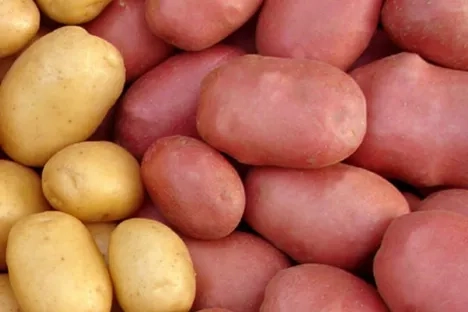Harnessing Scientific Methods for High-Yielding Varieties
In the verdant haor regions of Sylhet and Moulvibazar in Bangladesh, a wave of transformation is sweeping through potato cultivation, driven by scientific farming techniques and the adoption of high-yielding potato varieties. This agricultural revolution is not only boosting yields but also reshaping the economic landscape for local farmers and agricultural entrepreneurs alike.
One such pioneer is Habibur Rahman Jalal, an esteemed agricultural entrepreneur hailing from Giasnagar village in Moulvibazar Sadar. With a visionary approach, Jalal has meticulously cultivated an impressive array of 21 distinct potato varieties on his expansive farm. Each variety is meticulously labeled, a testament to the meticulous care and dedication invested in their cultivation.
The journey towards high-yielding potato varieties has been bolstered by strategic partnerships with key institutions like the Bangladesh Agricultural Development Corporation (BADC) and the Akbarpur Regional Agricultural Research Centre. These collaborations have been pivotal in providing Jalal with access to a diverse portfolio of potato varieties, carefully curated to thrive in the local climate and soil conditions.
Of the 21 varieties cultivated by Jalal, 18 were sourced from the Agricultural Research Centre, showcasing the efficacy of research-backed agricultural practices. Noteworthy varieties such as Bari-25 (Asterix) and Bari-78 have particularly stood out for their robust performance and superior yield potential. Despite encountering initial weather-related challenges, including unexpected rainfall leading to pest issues, Jalal’s diligent approach and timely interventions ensured a satisfactory harvest.
Central to Jalal’s success has been his commitment to regular maintenance practices, including precise fertilization schedules tailored to each variety’s needs. This meticulous care has not only optimized yield but also mitigated risks associated with adverse weather conditions, ensuring consistent quality and quantity of potato production.
The economic implications of cultivating high-yielding potato varieties extend beyond individual farms. They have the potential to bolster the entire potato value chain, from enhanced production efficiencies to improved market competitiveness. As farmers and agricultural entrepreneurs in Sylhet and Moulvibazar continue to embrace these innovative cultivation practices, supported by advancements in agricultural research and development, the future of potato farming in Bangladesh appears promising.







